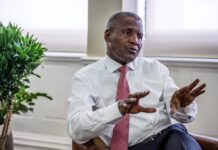
Leaders on both sides of a long-running civil war agreed to a second-chance peace agreement in Colombia and dozens of heads of state joined the dialogue at a key climate conference in Morocco. But there was disturbing news out of Egypt, where parliament passed a new law that cracks down on NGOs. This week in development news.
The Egyptian Parliament passed a bill to regulate nongovernmental organizations on Tuesday that opponents and human rights watchers say will dramatically limit the ability of NGOs to work in the country. The bill, which will still need to go through a final approval, would require NGOs to get permission to conduct fieldwork and polls or to work with “any international body;” NGO activity would be restricted to development and social work; and foreign NGOs would need to be overseen by a regulatory agency. It also introduces greater penalties for violations in the law, including jail sentences of up to five years.
Dozens of heads of state arrived in Marrakech for the “high-level” segment of the COP22 climate conference. This conference — the follow-on to COP21, which saw the successful negotiation of the Paris agreement — has put an emphasis on tackling “operational” issues within that historic framework. Negotiators are focusing on how countries should record and report the actions they are taking at home, what needs to happen to scale up ambition in the short term, and — critically — what kinds of resources developed countries will contribute to help developing countries confront the climate impacts they’re already experiencing. Donald Trump’s election as the next U.S. president has cast a cloud of uncertainty over what role, if any, the United States will play in these talks for the next four years. But other countries are clear: they do not need the American president’s blessing to invest in low-carbon technologies or implement programs to safeguard against climate risks. Financing remains the stickiest issue in Marrakech — developing countries want to see more public money — and it’s not likely to get resolved in the next two days.
The Colombian government and FARC rebel leaders have negotiated a new peace agreement after the previous version was rejected by voters in a plebiscite in October. The new deal, which was agreed upon on Saturday, is meant to address some of those voters’ concerns, including where rebels will live after they disarm, whether rebels would be guaranteed positions in government and how courts will address drug offenses. What comes next — and whether the updated deal fully addresses the opposition’s grievances — is a bit uncertain, but President Juan Manuel Santos may choose to have congress, rather than another referendum, make the decision on adoption. The result of that vote will go a long way toward determining Colombia’s future development.
Independent Commission for Aid Impact released a report this week that found that public remarks from the U.K. Department for International Development about eliminating aid to China and India have been misleading, because the government continues to provide considerable support to those countries. The watchdog agency, which reports to parliament, explored how DfID has managed the end to bilateral aid relationships and moved toward having a different kind of development partnerships with them. The review, based on case studies on Burundi, Cambodia, China, India, Indonesia, South Africa and Vietnam, found a number of problems.
In eastern Aleppo, aid organizations have almost completely run out of food, as bombs continue falling on the city. The United Nations and others have been warning of this moment when the city’s limited resources would run dry with aid shipments unable to replenish supplies in months.
Source: Devex.com



























